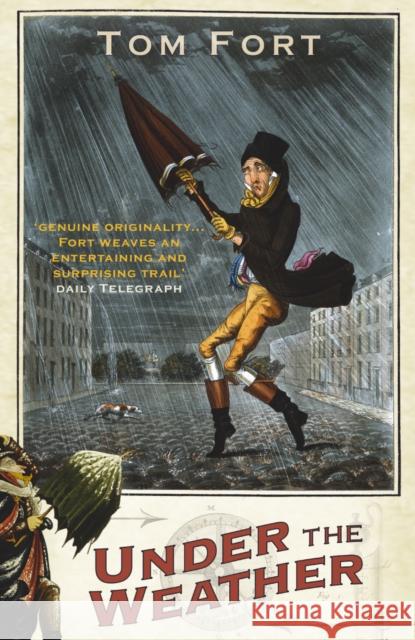Under the Weather : Us and the Elements » książka
Under the Weather : Us and the Elements
ISBN-13: 9780099461241 / Angielski / Miękka / 2007 / 335 str.
Tom Fort, whose writing has been variously described as "jocund," "slightly loopy," '"unbelievably poignant," and "deeply peculiar," travels around Britain experiencing some of its extremer climates and some of its more typical, with a view to explaining the British have made of theirweather and what it has made of them. There are two interlocking strands: the story of those whomoved to an exceptional, sometimes obsessive degree by the fascination felt by so manysought to know and understandthe weather; and the story of its impact on history, culture, and ways of thought and behavior. He focuses on the peoplethe clergymen, the gentlemen of leisure, the crackpots, visionaries, charlatans, and shysters, all now largely or utterly forgottenwho volunteered and toiled for the cause, telling their stories by tracking them down to the placesusually their own gardenswhere they indulged their quiet passion for measuring rainfall, scrutinizing dewdrops, tapping their barometers, and peering at their thermometers. Once the age of the amateur scientist was over, and the business of weather forecasting was annexed by professionals with state backing, it became a less colorful affair. The historical strand is, in part, a straightforward chronology; an account of the part played by climate inBritish history; how, when the sun shone and rain fell in gentle abundance, the nationprospered and multiplied; how, when the climate cooled, bringing wet summers and savage winters, they perished by plague and famine and retreated from places made unbelievable; how in time, asthe societymatured from a rural, peasant society, the weather became less a matter of life and death (though always an absorbing interest). But beyond that there is another dimension to its influencethe moral and spiritual one. This is contentious, but intriguing: the extent to whichthe Britishshapetheir view of "our weather," and the extent to which it may have shapedthe Britishinto the peoplethey are. "











